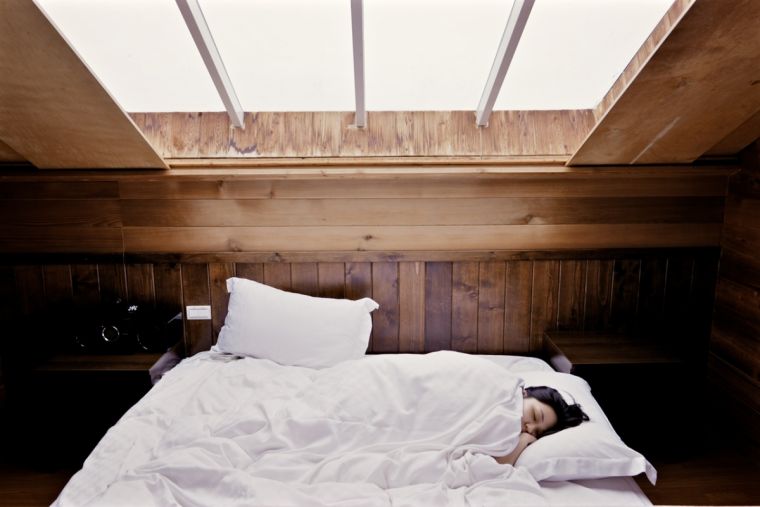10 Interesting Facts About the Effect Sleep Has on Your Body

Everybody needs sleep. Ideally, people need seven to nine hours of sleep a day to avoid depression, behavioural disorders, obesity, and other diseases such as diabetes.
The first step to better sleep, according to Thea Jourdan of the Hippocratic Post, is to understand it. She listed 10 interesting facts that people might not know about sleep.
The first thing she shared is that people are paralysed when they are dreaming. "Although you can still move your limbs when you are in the first stages of sleep, known as shallow, deeper and deep sleep, which lasts up to 100 minutes, you are rendered completely helpless when you enter REM (Rapid Eye Movement) sleep which is the only time you dream," she explained.
If people are not paralysed in their dreams, Jourdan said they would literally "act out" their dream, which can cause them injury.
The second interesting tidbit shared by Jourdan is that people wake up taller. Lying horizontal for hours at a time allows the body skeletal structure, cartilage and muscles to stretch out by millimetres, so children grow most during deep sleep.
Moreover, even fat cells need sleep, too, said Jourdan. "It used to be thought that it was only the brain that needed shut-eye in order to store memories and rest. Recent research has revealed that all the cells in the body need sleep – periods where the metabolism slows right down – including fat cells," she said. If they don't get their rest, fat cells lose up to 30 percent of their ability to respond to insulin, a hormone that regulates energy.
The fourth information shared by Jourdan is that alcohol can hinder good sleep. A little of it isn't going to harm people, but too much of it will keep people from having a restful night. "Don't think that alcohol is sleep tonic. According to a Sleep Council study, as many as 7.9 million have used alcohol to help them get to sleep at night," she said.
Next, people's work patterns affect their sleep. Shift workers are usually the ones who suffer from poor sleep, since their body clock is confused by their shift work.
The sixth tidbit can be quite alarming. Studies have shown that too little sleep is linked to cancer. "It has been attributed to raising the chances of a woman getting breast cancer by as much as 60 percent, because melatonin, a hormone produced by the brain during sleep to regulate the body's internal clock, plays a key role in preventing breast tumours by suppressing the amount of oestrogen that is released," explained Jourdan.
The seventh detail is quite scary too: Too much sleep can actually shorten a person's life. Heavy sleepers have a high mortality rate because their tendency to sleep shows an underlying metabolic problem.
Interestingly, Jourdan also said that rich people have better sleep compared to those who earned less or are unemployed. Professor of sociology Sara Arber at the University of Surrey backed this statement up.
"People who are jobless or on low incomes are likely to have stresses and worries, which can cause sleep disturbance. Also, your physical environment can affect your sleep. If you have to sleep on a sofa or live in a high rise with paper thin walls, you are more likely to be disturbed at night than if you live in a detached house in a leafy suburb," she said.
Next, Jourdan said new mothers have to deal with post-natal insomnia. They spend 20 percent more time awake during the first six weeks of childbirth than what is normal. They will revert to their usual sleeping patterns once their babies have made the adjustment and can sleep through the whole night.
Lastly, researchers have discovered that almost a quarter of teenagers fall asleep with the TV or laptop on. They call this "junk sleep," and this trend has the Sleep Council really worried.











